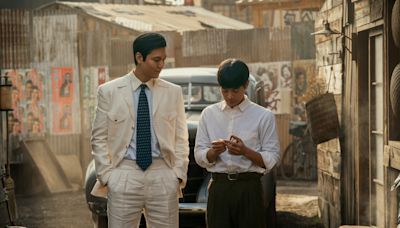Search results
- Freewrite to brainstorm ideas. If you’re interested in writing historical fiction but don’t know where to start, spend 15 minutes freewriting in your notebook about a time period or historical event you’re interested in rendering in fiction.
- Find an interesting way into a time period. Consider using a historical time period as a backdrop and placing fictional characters and events within that world.
- Do your research. In addition to getting the historical facts correct, the smaller details are important, too. Write an inventory of the details in your work that you haven’t researched but should check.
- Build a world. Worldbuilding makes a historical fiction book more authentic and gives readers a reason to keep coming back. Include historical details about daily life in the world in which your story takes place to give readers historical context, and balance those exotic details with familiar, relatable ones to keep the story grounded.
2 days ago · This characteristic echoes her little-known interest in historical novels, evidenced by her Historical Association pamphlet of that title (1961). It offers a reflective survey of the genre, based on a redoubtable breadth of reading, predominantly Anglocentric: that she thinks Alessandro Manzoni’s The Betrothed (1827 and 1842) is set during Napoleon’s Italian campaign demonstrates that she ...
One of the great things about writing historical fiction is that history is a wonderful source of inspiration. There are a few different approaches you can take to utilising it: 1) Tell a fictionalised (but accurate) version of a true story. This includes biographical historical fiction, where the focus is on telling the story of someone’s life.
Jan 31, 2018 · Anita Diamant’s bestseller The Red Tent tells the fictionalized story of the Biblical character Dinah. For Diamant, the imagination in historical fiction allows the author to provide a ...
- Karen Yuan
- Establish your own set of rules for when to bend history for the sake of the story—and stick to them. There are as many opinions on how accurate historical fiction should be as there are historical fiction authors, and they vary widely between those who consider accuracy an optional bonus and those who can be, well, a little bit pedantic.
- Do plenty of research—but know what to include and what not to include in your novel. Research is one of the very first steps on your journey to becoming a historical fiction author.
- Include characters who break the conventions and norms of their period—but don’t forget to include context. History is replete with exceptions—people who ignored or rejected social conventions, overcame entrenched political and economic barriers, or challenged the prevailing wisdom of their time.
- Don’t write like you’re in the 14th century. One of the ironies of writing historical fiction is that, in many cases, your dialogue should actually not be historically accurate.
Nov 10, 2022 · 2) Research the Basic Historical Context. Now you have to become a semi-expert in your era. This will require some in-depth research, but it’s hard to know where to start. I once heard a historical fiction writer say she starts by getting an overview of the time period from the children’s section of the library.
People also ask
What makes a good historical fiction book?
How do you write historical fiction?
Can you write historical fiction from a historical perspective?
How hard is it to write a historical fiction novel?
Why do people like historical fiction?
What is historical fiction?
Apr 25, 2024 · Write historical fiction based on the lives of real people. Another way to write historical fiction is to base it on the life of a real person, as Therese Anne Fowler did in Z: A Novel of Zelda Fitzgerald. While Fowler’s story is based on events from Zelda Fitzgerald’s life, Fowler takes creative liberties in imagining conversations and ...


